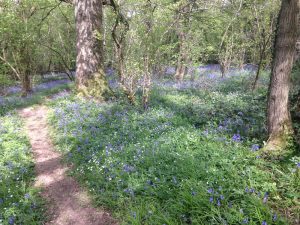You once read, in a psychology journal you found in a dentist’s waiting room, that two people who have loved each other since age five or younger will instinctively believe that they are blood siblings. When, at seventeen, you began to dress like Solomon—to take his sweatshirts home, to wear circular wire-frame glasses identical to his except in their prescription—you despised yourself for it. Although you have no biological relation to Solomon, this mimicry red-flagged incest in a visceral way. You had been neighbors since you floated in utero. All your lives, you lived next door to each other in your little town near Anchorage. Together, you raised bugs and frogs in air-holed mason jars in Solomon’s bedroom and memorized riddles and Grimm’s fairytales to tell each other on tedious fishing trips with your parents. In middle school, you alternated first and second place medals at science fairs in cold gray gymnasiums across Alaska.
All posts tagged: June 2021
Translation: Hong Kong Poet Derek Chung
Poems by DEREK CHUNG 鍾國強
Translated from the Chinese by MAY HUANG 黃鴻霙
Poems appear in both Chinese and English.
Translator’s Note
Cha chaan tengs, local diners that serve comfort food all day, are a cornerstone of Hong Kong culture. At a cha chaan teng, you can order beef satay noodles for breakfast, a cup of milk tea stronger than any Starbucks coffee, lo mai gai (glutinous rice and chicken wrapped in a lotus leaf), and more. To many Hongkongers, cha chaan tengs evoke a sense of familiarity and nostalgia. Indeed, it was precisely these feelings that drew me, a Hongkonger living in America, to translate Derek Chung’s (Chung Kwok-keung) remarkable poems.
Chung wrote “The Cha Chaan Teng on Fortune Street” in 1996 about a Cha Chaan Teng he visited in Sham Shui Po while running an errand. He no longer remembers what the errand was for, he writes in a blog post, but “words have helped [him] remember concrete details of that cha chaan teng.” At the same time, he also wonders whether there is something about a place that is lost forever once it no longer exists, no matter what we write down. As evocative as the details in this poem are, from the “soft clink” of utensils to the “grease-soaked hair” of a waiter, the poem ends on a note of uncertainty, unsure of whether words can safeguard memory.
Frost’s Footfall

The bulky figure coming towards me on the path has a stick in one hand, a small bag in the other, but I can’t make out his face because the dappled light that filters through the trees in the wood is playing with his features. As with most people, my mind drifts when I go for long walks and I forget about my surroundings until something like the cackle of a crow or a breaking twig or the heavy tread of somebody approaching, snaps me out of my reverie and, for a nanosecond, I am in the grip of a timeless uncertainty. I think of bandits, pilgrims, squires and ploughmen but, by the time we are a few yards from each other, I see the pleasant face of what turns out to be a maths teacher on a weekend break. His rucksack contains a plastic bottle of water, which he finishes off in a few gulps, and his stick is one of those Nordic walking poles.



